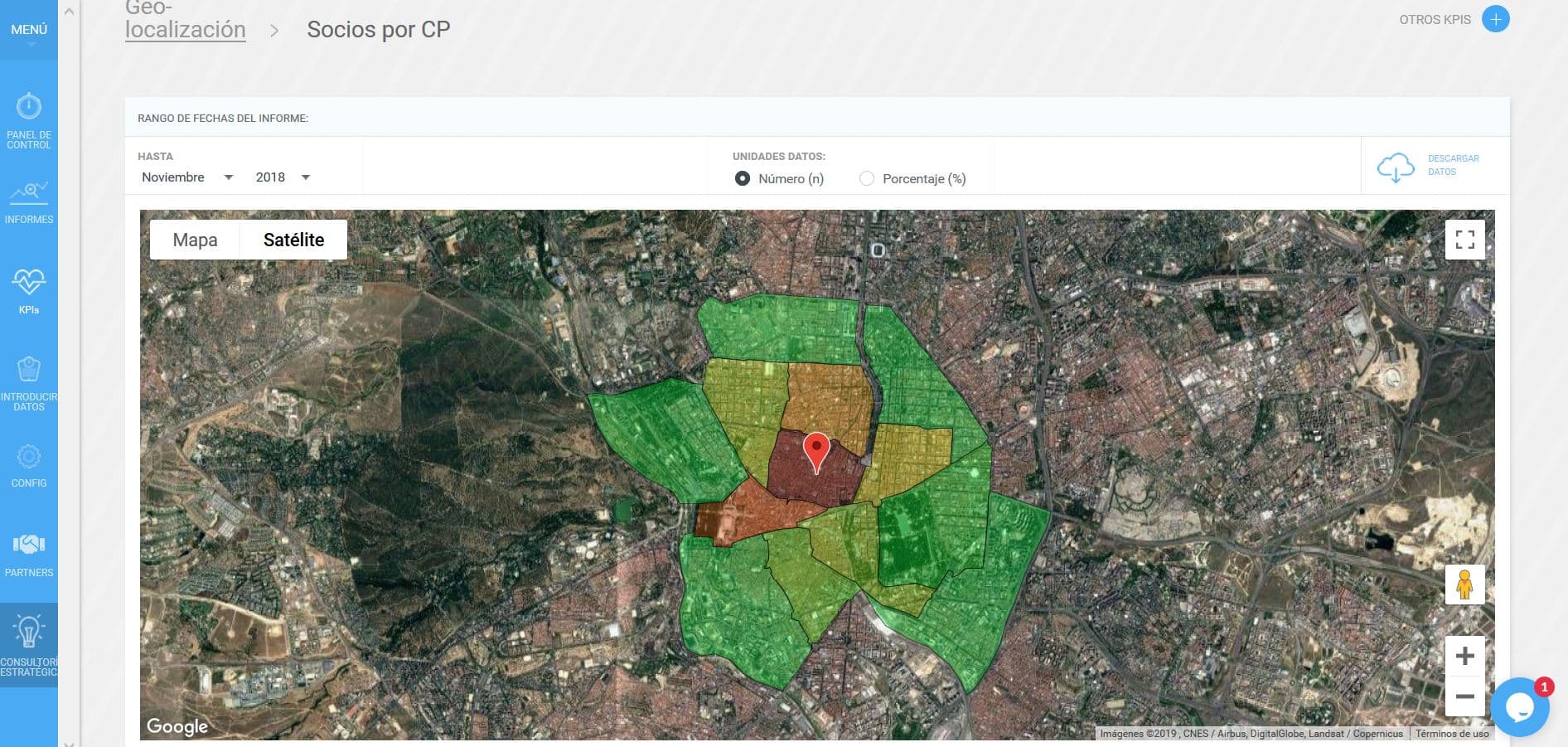
The average share is one of the most important KPIs to measure because it indicates the revenue the club earns per client in terms of fees. Since fees are the main source of income for most clubs, with approximately 80-90% of income coming from them, it's crucial that the average share does not decrease.
The average share can be calculated in two different ways. The most common and straightforward method is to divide the total revenue from fees by the number of members.
The other way to calculate it is through what is called the weighted average share, which involves multiplying the euro amount of each type of fee by the percentage of clients that fall into each fee category.
We recommend using the first method because it corresponds more closely to the actual amount charged to clients, as revenue is used for its calculation. In the weighted average share formula, income is included that may not actually be received, as a client might have an assigned fee but may not have paid that month due to being in a promotional period or for some other reason.
These two methods of calculating the average share never coincide for the reason just mentioned and for other factors such as advance payments with a commitment to stay or promotions.
It's difficult to provide a reference value that applies to all clubs, as the fee price depends greatly on the type and positioning of the club. As a reference, the average share in the sector is around 30-35€ according to some studies. This share is highly influenced by the growth of low-cost clubs. Given the current variety of club models, the average share of the sector is not a very valid reference, so an average reference share for each type of club should be established. Although there is no reliable data to define a reference average share for each business model, we can establish some approximate values as a reference:

The average share has a significant impact on what we call the customer value. Therefore, every manager should ensure that the average share remains as high as possible.
Additionally, any small improvement in the average share has a significant impact on revenue, as an increase in the average share multiplies across all members and all months. For example, an increase in the average share of 2€ in a club with 3,000 members results in an increase in revenue of 6,000€ per month, which over a year amounts to an increase of 72,000€.
An average share increase can be achieved when the club makes an investment that results in an increased level of service offered to its clients. For example, a club that builds a new pool or makes any other significant expansion in facilities and services.
There are also more subtle ways to increase the average share. One way is to reduce the options for fees by eliminating the cheapest ones. For example, stopping the offering of a morning-only fee if that was the cheapest option.
Another approach is to narrow the price difference between different fee options. For instance, reducing the price gap between the annual and monthly fees or between the all-day and morning-only fees.
In any fee change, one can be very aggressive and implement it immediately for all members, or take a more conservative approach by maintaining the current price for existing members and only increasing it for new ones. The strategy used will depend on the club's situation, its fee level compared to competitors, and whether there is any new feature that could justify a widespread price increase.
Many clubs have not increased the average share for several years, and some have not even made annual updates for inflation, effectively decreasing the real value of the average share. This leads to a progressive reduction in customer value, forcing clubs to acquire more clients to survive.
The sector should start valuing the excellent service it provides to the public and begin to increase the average share to make clubs much more sustainable.
